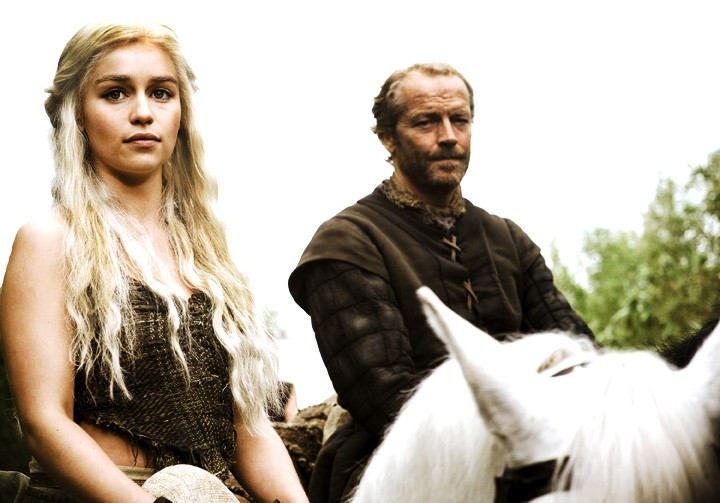HBO’s hit fantasy drama “Game of Thrones” returns for its fourth season on Sunday. Coming off a devastating end to season three, this upcoming season has been billed as the most action-packed yet. While the show has typically built up to one or two momentous events each season, season four is expected to be packed with twists and turns.
“Game of Thrones” is set on the fictional continents of Westeros and Essos, and follows two main story lines. The most prominent is a power struggle between multiple households that are each trying to win control of the Seven Kingdoms. The second has to do with the impending winter and the rise of the “White Walkers,” a mythical race of zombie-like figures.
But the show isn’t just plot-driven. While the characters and the story are strong, “Game of Thrones” also delves into interesting themes. It explores more contemporary issues like religion and corruption, but also issues that are a little more out-of-the-box, like civil war, incest and the social hierarchy. Of course, shows have explored these things in the past, but rarely has a show been able to effectively explore them all at once.
“Game of Thrones” is perhaps most impressive in how it balances all of its numerous characters. There are so many moving parts that it could be hard for audiences to keep up with everything that’s going on. However, the show successfully gives each character and story line enough airtime to maintain its coherence throughout. It’d be easy to give Daenerys and her Buick-sized dragons more scenes just because they’re audience favorites, but “Game of Thrones” writers know that the show has to be well-rounded in order to work.
As a movie, or even a series of movies, the show would be a disaster. There simply wouldn’t be enough time to develop each character and maintain a coherent plot. One of the big advantages of television is that the stories can be deeper and more complex because the creators are not beholden to a single script or time limit. It doesn’t have to be a single story; rather, it can be multiple smaller stories that fit into a grander scheme.
Visually, “Game of Thrones” is incredibly impressive, in large part due to its grandiose scale. The world it has created feels vast and diverse. The show shoots on location all around Europe, in places like Ireland, but also outside Europe, in places like Morocco, Iceland and Los Angeles. The show has done an amazing job of building up its world and populating it with recognizable characters who hold emotional gravity with audiences.
“Game of Thrones”’ biggest appeal is that it has a little something for everybody. Violence, scandal, dragons, sex, magic and blood, with characters who are worth rooting for, and others we love to loathe — like Joffrey.
“Game of Thrones” delivers unexpected and devastating plot twists, but isn’t ridiculous in a way that would turn people off. For a show that takes place in a fantasy world, it has a palpable realism. While its characters may not be relatable in practice — nobody in real life gives birth to dragons — their emotional experiences are. It’s even easy to develop emotional attachments to characters who would otherwise be considered repulsive, had the show been executed poorly.
More so than any other show currently on television, “Game of Thrones” feels like a weekly event, with anticipation for the next episode beginning the second the latest one has finished — think the final eight episodes of “Breaking Bad.” The show dominates Sunday nights, which are lauded as the best night of the week for television.
We have yet to find out who will end up atop the Seven Kingdoms, but we know who dominates the current television landscape. With “Breaking Bad” finished and “Mad Men” on its way out, this is “Game of Thrones’” time to shine, and it hasn’t disappointed yet.









